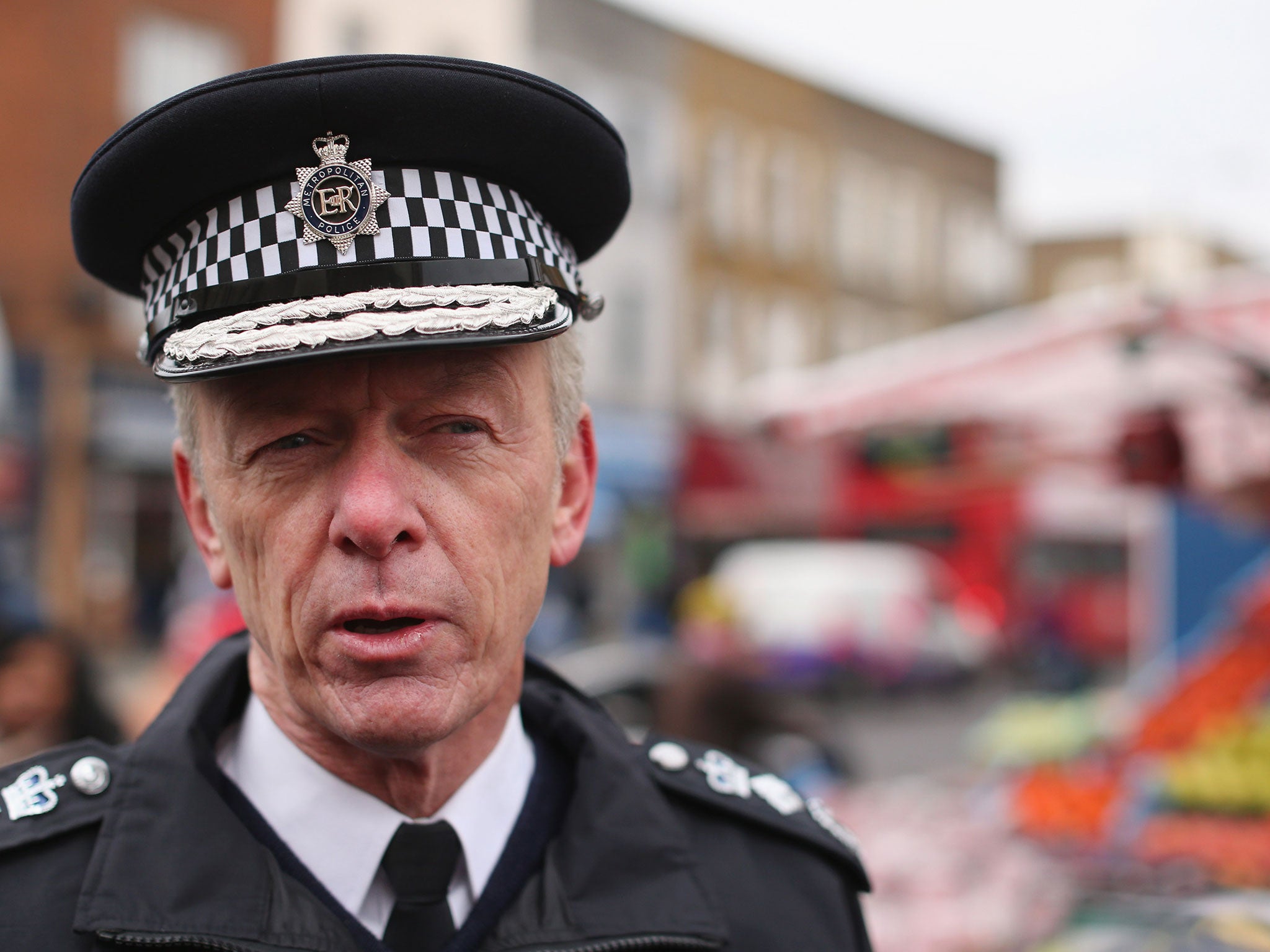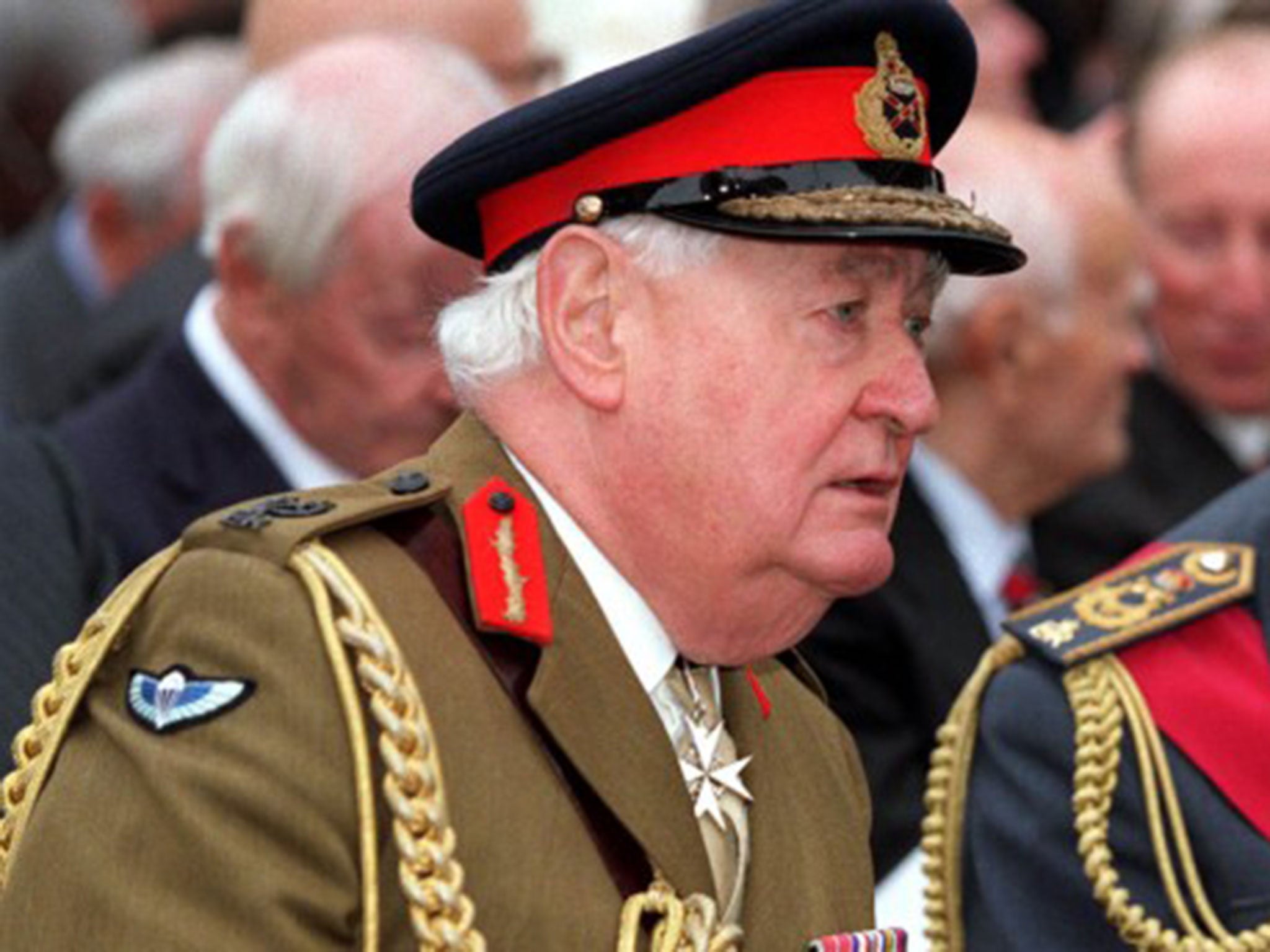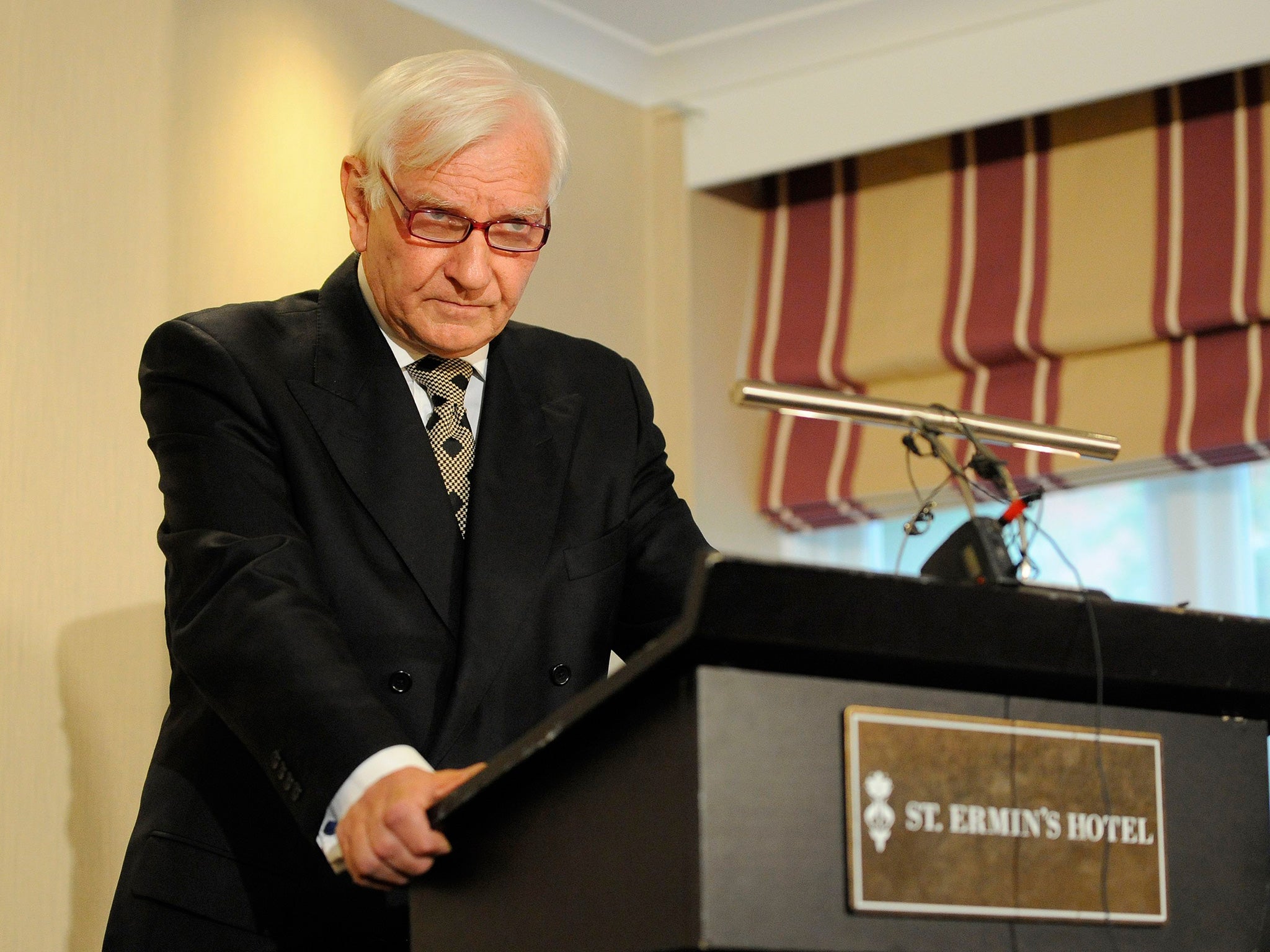Sir Bernard Hogan-Howe has contract with Met Police extended by a year amid criticism of sex abuse investigations
The Commissioner said he did not want officers to automatically 'believe' people making sexual abuse claims

Sir Bernard Hogan-Howe has been given a one-year extension to his contract with the Metropolitan Police, Theresa May has said.
The Home Secretary's announcement came after he rebuffed accusations of “trawling” for rape victims as criticism continues over investigations into historic sexual abuse.
Responding to calls to apologise to Lord Bramall, the former armed forces head who was investigated for nine months before the probe was dropped, he said: “I can’t really apologise for investigating a serious allegation and that’s what we’ve done.
“I have expressed regret and it's a genuine regret, if he, Lord Bramall, or his family have been damaged in this process.”
The 92-year-old was investigated as part of Operation Midland, Scotland Yard’s inquiry into an alleged VIP paedophile ring that was active in the 1970s and 1980s.

The probe has been beset by controversy since allegations against the former Conservative MP Harvey Proctor were also dropped, and police backtracked on a statement calling the testimony of an alleged victim known as Nick “credible and true”.
Speaking on BBC Radio 4’s Today programme, Sir Bernard said that the Metropolitan Police had responded to cover-up allegations following revelations about Jimmy Savile’s abuse.
John Humphrys, the presenter, suggested the force had been “trawling” for allegations after publicly appealing for victims to come forward, adding: “I put victims in inverted commas.”
“Well, I’ll put the word ‘trawl’ in inverted commas,” Sir Bernard replied, pointing to allegations that police had ignored and mistreated sexual abuse victims in the past.
“We’re asking for people who are genuine victims to come forward to complain,” he added.
“If people do want to come forward, we are obviously going to listen to them.”

As well as accusations of a “witch hunt”, the Commissioner has been criticised for allowing suspects who could later be cleared to be identified.
“We didn’t put the names of the suspects into the public domain and that’s caused real problems with the investigation,” he said.
When Humphries pointed out that dawn raids involving dozens of police officers and off-the-record briefings giving ages and other details make such investigations difficult to ignore, Sir Bernard said an inquiry into his force’s handling of historic claims would expose any failings.
He announced the probe on Wednesday in a move accused of being timed to divert personal criticism.
But Sir Bernard denied the motive, telling Radio 4: “I didn’t set up the inquiry to divert attention for me, I set up the inquiry because I believe it is the right thing to do.”

It is being led by former High Court judge Sir Richard Henriques, who previously found that the CPS and police missed three chances to prosecute the late Lord Janner.
“If he concludes that we could have done it better we will of course listen to that,” Sir Bernard said, but hinted that there could be “other aspects” that delayed suspects being cleared.
A summary of his findings are expected to be published later this year but the Commissioner said making the full report public could damage suspects, victims and witnesses.
He is calling for an altered approach to people making sexual abuse claims but insisted that victims would always be treated with empathy and understanding.
The Inspector of Constabulary’s current guidance states that any complaint of sexual abuse must be immediately recorded as a crime and a victim should “always be believed”.
“I think we’ve got really hung up on this word ‘belief’, it’s really confused officers,” he added.
“We have got to get this right.”
Sir Bernard said that officers must test the accuracy of allegations and evidence impartially, while supporting the complainant, and proposed a ban on identifying suspected sex attackers until they are formally charged.
Alleged victims of sexual offences are granted automatic lifetime anonymity under current laws, while there are no restrictions on naming suspected offenders.
Asked about his own position during a terse exchange on Radio 4, the Commissioner said he would not announce when he would leave his post but that it would not pass a maximum of seven years, which would be in September 2018.
“I’ve done my job to the best of my ability without fear and without favour,” he added.
“I always say leaders shouldn’t give away when they are going because in your last year you get dismissed, and I have no intention of getting dismissed.”
